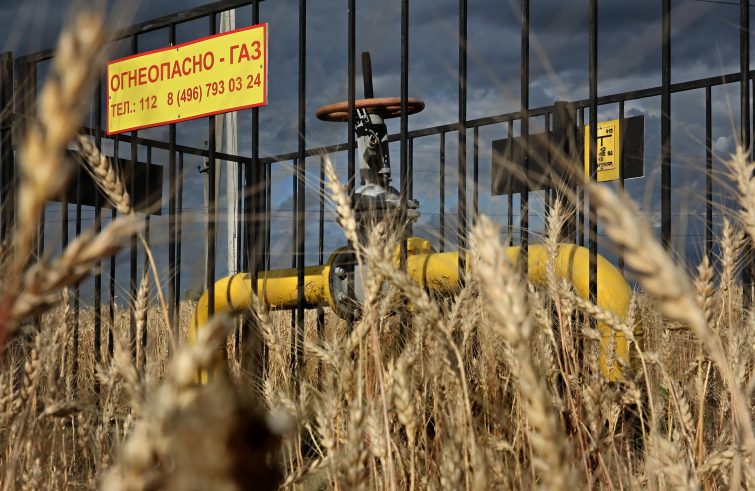
A free handout of 50 thousand tons of grain bound for six “friendly” African countries – Burkina Faso, Zimbabwe, Mali, Somalia, Central African Republic and Eritrea. This is Vladimir Putin’s announcement for Africa, following the suspension of the Black Sea Grain Initiative, an agreement that allowed ships from Ukraine safe passage to the south. Putin made the announcement at the opening of the Russia-Africa summit in St. Petersburg. However, many countries in North Africa and the Horn of Africa, especially Egypt, are excluded from this “handout”. Above all, the future of much of the African continent, which was 80 percent dependent on Ukraine for food supplies, remains unknown.
A loaf of bread is a luxury in the Central African Republic: very few people in the capital, Bangui, can afford it. “Do you know how much this bread costs?” asks Sister Elvira Tutolo of the Missionaries of St. Jeanne Antida Thouret, sending us a photo of a baguette via Whatsapp. “One euro sixty!”
In Central Africa, bread is for Westerners: ordinary people are too poor and eating habits are completely different.
People eat fufu, a porridge made from cassava flour and corn, and consume a lot of vegetables. “Cassava is the staple food in Africa: it is mixed with wheat flour,” explains Fr. Giovanni Piumatti, who has been working in Kivu, Democratic Republic of Congo, for years. “Wheat, however, has been precious since biblical times for Egypt, the Middle East and all of North Africa,” says the fidei donum.
The war in Ukraine, the suspension of the Black Sea Grain Initiative and rising food prices will worsen conditions for people already living in poverty. The main losers will be the northern part of the African continent – especially Egypt, Algeria, Tunisia – and the wretched Horn of Africa, where Sudan and Somalia are already suffering terribly from war and drought.
“Africa is the big loser in this crisis,” say our missionaries.
“When you go to the market and see that prices have doubled, and not only for flour, you start to cry,” confides Brother Riccardo Racca, a missionary in Sierra Leone. “Yes, the grain crisis is being felt here, especially in the price of flour: a 50 kg sack has gone from 30 to 60 euros in less than three months. And remember that 60 euros is the average monthly salary for those lucky enough to have a steady job,” he explains. “The price of bread has doubled, as have the prices of many basic foodstuffs.
Anna Insogna, a Combonian in Nampula, Mozambique, says, “So far we have not seen much difference from the past few months, but a few months ago there was a sudden drop and there was no flour on the market.
The collapse of the Black Sea grain initiative (with Russia’s ban on grain exports from Ukraine) will affect sub-Saharan Africa only marginally, but
will have “major consequences for the food security of the most vulnerable part of the continent”.
This is what Father Jorge Alberto Bender, a Franciscan and farmer in Mozambique, predicts. The grain deal was negotiated by Turkey and the United Nations in July 2022 to allow ships carrying fertilizers and agricultural products to leave Ukrainian ports through safe routes to the Bosporus Strait. This allowed 32.8 million tons of corn and wheat to leave Ukraine. More than half of this went to developing countries, including donations from the World Food Program, which received 313 tons for Ethiopia, Kenya and Somalia. Somalia received 84 thousand tons of wheat in 2022, compared to 31 thousand in 2021. Food aid is vital in the failed state, which is threatened by Al Shabab, the armed wing of the Islamic Courts.
“Unfortunately, the blockade will be felt in Somalia, which even before the war imported 90% of its grain from Russia and Ukraine, a country already devastated by conflict and drought,” predicts Father Jorge Bender. The Argentinean missionary is one of the promoters of a communal farm in the Mozambican savannah.
Somalia, Ethiopia and Kenya are already facing the worst drought in decades in the Horn of Africa, Father Jorge said. In addition, according to the Global Agricultural Information Network (Gain),
Egypt is expected to see a 2.9% increase in wheat imports due to population growth: where will all the needs come from if not from Ukraine and Russia?
“To reduce their dependence on imported wheat, some African countries have decided to grow more and be less dependent on imports” Father Jorge continues. “In Zimbabwe, for example, the government has worked with the private sector to convince farmers and investors to grow more wheat,” he said. But this is an exception. And it is certainly not the case in the Horn of Africa, where the private sector is completely absent.
“I don’t know what will happen with the suspension of the Black Sea grain initiative, and I don’t know if Russia alone will replace Ukraine in grain exports – argues Fra’ Ettore Marangi, a Franciscan missionary in Nairobi – but I do know that something very serious is happening here in Kenya: the currency is in free fall. There are constant protests, and in some places cars have disappeared from the road because of the high cost of fuel; the inflation of the Western world is hitting Africa. Since I’ve been here, ten years now, this seems to be the worst moment”.
(*) Popoli e Missione










